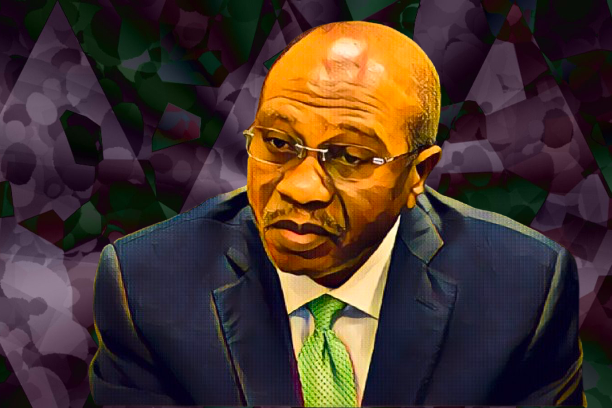Key Points
-
Emefiele fraud trial delayed over dispute on phone evidence.
-
Defence accuses EFCC of blocking access to key device.
-
Court orders EFCC to file forensic report within 24 hours.
The trial of former Central Bank of Nigeria Governor Godwin Emefiele over an alleged $4.5 billion fraud has been delayed again.
This time, the delay was because of a disagreement between the Economic and Financial Crimes Commission and his defense team on how to test a mobile phone that could be vital to the case.
At Tuesday’s hearing before Justice Rahman Oshodi of the Ikeja Special Offences Court, both sides accused each other of blocking the forensic test, which had been scheduled for September 24 and 25.
Emefiele and his co-defendant, Henry Omoile, are facing 19 charges, including fraud, corruption, and abuse of office.
The EFCC had presented an iPhone 12 with WhatsApp messages as part of its evidence against the former central bank chief.
The court had ordered that the phone — marked as iPhone 2 — be examined by experts from both sides to confirm whether the WhatsApp chats in question were genuine.
Defence accuses EFCC of blocking access
Emefiele’s lawyer, Olalekan Ojo, SAN, told the court the test could not take place because the EFCC refused to release the phone for full examination.
He said the EFCC insisted the phone could not be completely exposed to the team, even after the court’s registrar clarified that the judge’s order allowed access to both the phone and its WhatsApp contents.
“The Apple expert asked for the device, but the EFCC representatives said a clear ‘No,’” Ojo told the court.
He asked the judge to issue a new order forcing the EFCC to allow unrestricted access to the phone, saying their refusal amounted to disobedience of the court’s directive.
EFCC says defence breached procedure
EFCC lawyer, Rotimi Oyedepo, SAN, denied the allegation and said it was the defense team that violated forensic standards.
He told the court that the defense expert had connected the phone to the internet during the test, which could automatically change or delete the data.
“The defense’s expert carried out part of the analysis online, and that can damage or alter the evidence,” Oyedepo said.
“We have never stopped them from doing the test. We only insisted that it must be done professionally to protect the integrity of the evidence.”
Both Ojo and co-defense counsel, A. Kotoye, SAN, asked the court to suspend the case until the forensic report is completed.
They said the WhatsApp messages form an important part of their argument and that going ahead without them would be unfair.
Judge orders quick report, continues trial
Justice Oshodi, after listening to both sides, directed the EFCC to file its forensic report within 24 hours.
However, he allowed the hearing to continue so that a prosecution witness who traveled from Abuja could testify.
The judge also ordered both parties to start sending and receiving court documents electronically to avoid further delays in the high-profile case.



